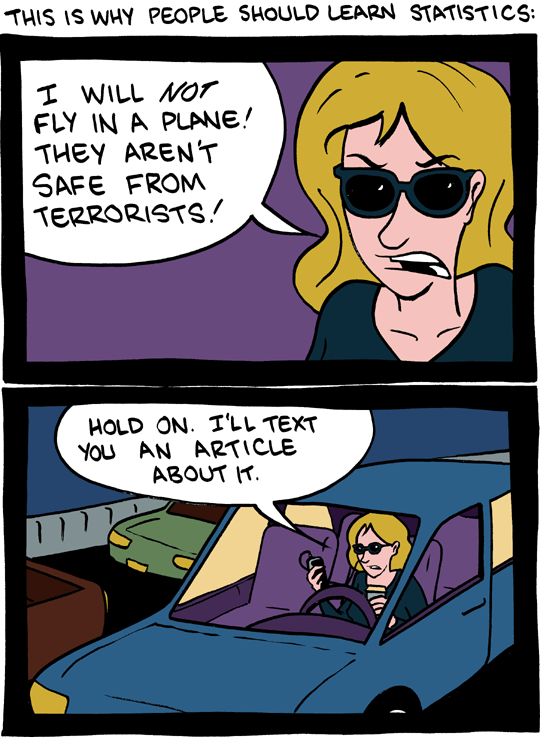from the questions-to-ask dept
We've written a few times now about the absolutely brilliant
SSRC report on media "piracy," and how it's basically a business model problem, rather than a legal one. The report is thorough, detailed and rather complete on a variety of topics related to this issue. And while we might hope that such a fantastic piece of scholarly research could take certain silly arguments off the table, apparently that's wishful thinking. The main guy behind the report, Joe Karaganis, has recently posted some blog posts on the whole "terrorism" issue. You see, it's quite common for people pushing for greater copyright enforcement to make the claim that infringement funds terrorism and organized crime. We've attempted to debunk some of those claims in the past, but the SSRC folks did an
amazingly thorough debunking (pdf) of the whole thing. Basically, it argues that, pre-internet, there was likely a connection between counterfeiting CDs/DVDs and organized crime, but that business has pretty much dried up thanks to the internet. So the claims of infringement funding such things is really lacking. A snippet:
Arguing that piracy is integral to such networks means ignoring the dramatic changes in the technology and organizational structure of the pirate market over the past decade. By necessity, evidentiary standards become very loose. Decades-old stories are recycled as proof of contemporary terrorist connections, anecdotes stand in as evidence of wider systemic linkages, and the threshold for what counts as organized crime is set very low. The RAND study, which reprises and builds on earlier IFPI and Interpol reporting, is constructed almost entirely around such practices. Prominent stories about IRA involvement in movie piracy and Hezbollah involvement in DVD and software piracy date, respectively, to the 1980s and 1990s. Street vendor networks in Mexico City--a subject we treat at length in the Mexico chapter--are mischaracterized as criminal gangs connected with the drug trade. Piracy in Russia is attributed to criminal mafias rather than to the chronically porous boundary between licit and illicit enterprise. The Pakistani criminal gang D-Company, far from "forging a clear pirate monopoly" in Bollywood, in RAND's words, plays a small and diminishing part in Indian DVD piracy--its smuggling networks dwarfed by local production.
The US record isn't more convincing in this regard. Jeffrey McIllwain examined the Department of Justice’s IP-related prosecutions between 2000 and 2004 and found that only 49 out of the 105 cases alleged that the defendant operated within larger, organized networks. Nearly all of these were "warez" distribution groups for pirated software--hacker communities that are explicitly and often fiercely non-commercial in orientation. McIllwain found "no overt references to professional organized crime groups" in any of the DOJ's criminal charges (McIllwain 2005:27). If organized crime is a serious problem in these contexts, it should not be difficult to produce a stronger evidentiary record.
And yet... despite all of this, Business Week recently published an
MPAA propaganda piece, once again asserting the link. What was even more troubling is that they did this
after talking to Karaganis, who explained to them why the MPAA's claims were pure bunk. The reporter ran the story anyway. It's almost as if Business Week and/or the reporter, Mike White, had the story they wanted and it was going to get published no matter what the evidence
actually says. Whereas White's report claims:
Lax enforcement and high profit margins have made trafficking in counterfeit DVDs a flourishing side business for drug smugglers and crime rings worldwide. Russian gangsters and Mexican drug cartels such as Los Zetas and La Familia Michoacana, Chinese gangs, and even former members of Northern Ireland’s Irish Republican Army have all piled in to the lucrative business in the past decade, according to Robinson. “The scope of organized crime in home-video piracy is enormous,” he says.
Karaganis retorts with what the evidence actually shows, that the "high profit margins" in that business have been eroded by the internet and the criminals are leaving this business in droves:
Much closer to the truth would be that they piled out of the business in the past decade as profit margins on pirated CDs and DVDs collapsed. We see no evidence that DVD piracy is still a high margin business, nor does the story provide any. Rather, our work documents that pirate prices have fallen dramatically as burners became cheap in the early 2000s and, more recently, as non-commercial internet-based file sharing began to displace DVD piracy. In this context, Mexico has one of the most competitive pirate DVD markets documented in our study, with widespread, small-scale cottage industry production and retail DVD prices routinely under a dollar. Criminals, as we’ve noted more than once, now have to compete with free.
Then we have the second Karaganis blog post, in which he notes that the Gadhafi family (mainly via Muamar's son Saadi) has
invested about $100 million in big Hollywood movies, including the Adrian Brody/Forrest Whittaker film,
The Experiment. This would be the same Saadi Gadhafi accused of
ordering Libyan soldiers to shoot protesting civilians. Not surprisingly, this whole "shooting civilians" thing is
causing some problems for the Hollywood folks relying on his money.
If we're going to worry about movie money going to fund questionable activities, wouldn't it make sense to focus on the
actual connections, rather than the mythical ones the industry has dreamed up?
Filed Under: infringement, movies, terrorism





